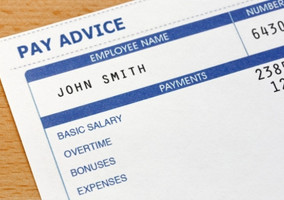Mencap has revealed that it is facing an estimated £20m back pay bill for workers on sleep-in shifts, which could lead to "displacement or redundancy" for up to 4,000 workers, and closure for up to 200 care homes and services.
Its chairman has said the bill will use up all the charity's reserves and require it to “sell assets, cut programmes and cancel investment” unless government steps in to meet some of the cost.
The bill stems from a government decision to change payment terms for care workers who slept at the houses of clients. The rules now say that "sleep-in" workers are due minimum wage for the whole time they are at their place of work, even if asleep.
This will create problems for charities in the future, because many government contracts do not cover the cost of paying these carers.
But the more immediate problem is that workers will be able to claim back pay for sleep-in shifts going back six years, at an estimated cost to charities of £400m. Mencap has warned that many charities will be unable to afford such bills, and will struggle to continue - leading to a potential crisis in social care.
HMRC had begun enforcement action to obtain back pay from charities, but the government has halted enforcement until 2 October.
Charities are hoping to reach an agreement with ministers over the payment of this bill before that date. The sector is lobbying for government to meet some or all of that bill.
Mencap has revealed for the first time the size of the bill it faces if the government refuses to fund any of the money owed.
In a press statement, Mencap chairman Derek Lewis said his charity’s estimated back pay liability is £20m, which exceeds its financial reserves of £19.6m.
While Lewis stopped short of saying this bill would bankrupt the charity, he did says it would require the organisation to “sell assets, cut programmes and cancel investment”.
He said: “Our plans to improve the lives of those with learning disabilities could be set back by a decade or more, as we struggle to repair the financial damage that would be caused by this liability.
“If government fails to fund or offers only partial funding Mencap would be forced to take emergency action to hand back care services that do not cover costs, to local authorities.
“Initially, this could result in the termination of care in over 200 residential care homes and services, affecting more than 2,000 people with serious learning disabilities. Between three and four thousand dedicated care workers could face displacement or redundancy.
“Investment would also cease and programmes such as the critical information and advisory service that we run for families would have to stop.”
Lewis criticised the Department of Health’s commissioning of Deloitte in recent weeks to do its own research on the extent of back pay liability in the sector.
He said: “Trying to identify individual liabilities among the 100,000 personal budget holders, will be even tougher as government has to rely on the 418 individual Local Authorities, who originally commissioned the care.”
In Charity Finance
The Department for Business, Energy and Industrial Strategy (BEIS)’s guidance, published in October, says minimum wage must be paid to workers even if they are asleep and uses a care home as an example.
Before this was published, most providers previously paid these workers a flat-rate of between £35 and £45 but now these charities could be forced to backdate pay by up to six years.
Mencap chief executive Jan Tregelles said demands for retrospective pay could have been avoided if guidance had been clear earlier on.
She said: “The government might wish to consider its role in this particular tragedy. If government’s original national minimum wage guidance had correctly reflected the law, sleep-in care shifts would have been paid and funded by government at NLW rates and there would be no retrospective liability.”
Mencap has been running a petition since HMRC enforcement action was suspended in July, calling on government to foot the bill, which has gained more than 10,000 signatures.
Related articles












